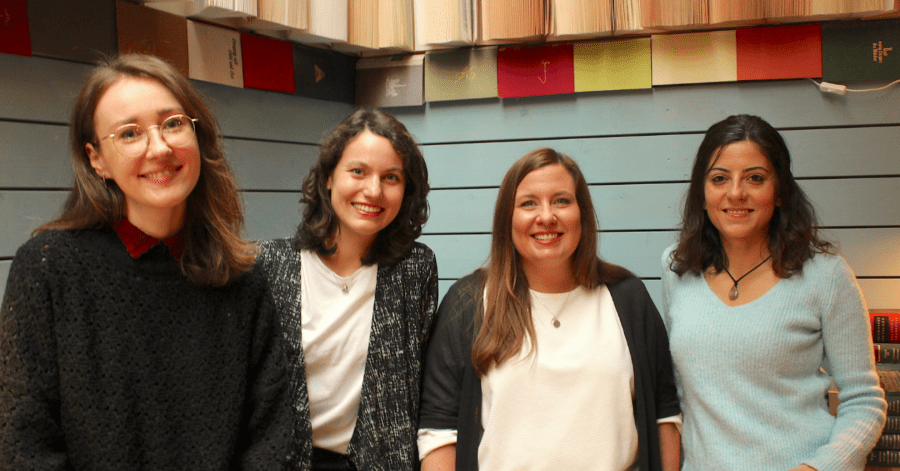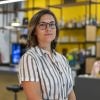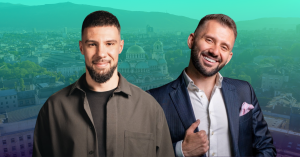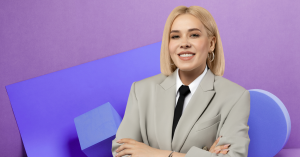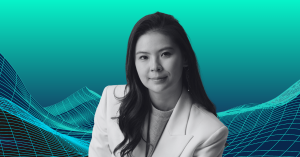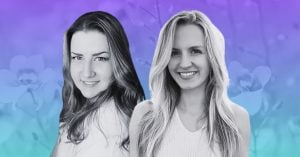Julia has been battling chronic fatigue syndrome for several years now. It’s a disorder causing extreme fatigue that doesn’t improve with rest. And although it has the power to consume your life, it can be invisible to others.
“Chronic fatigue syndrome now dominates my daily life and belongs to me like a small child that I have to take care of all the time,” Julia says. She wants to develop an app that will give women with disabilities and chronic diseases greater visibility on the job market.
Julia developed this business idea during the FemPreneurship Academy, a digital programme aimed at women with disabilities and/or chronic illnesses, as well as mothers of children with disabilities. It is organized by JAMBA-Career for All, an NGO that supports people with different abilities to build digital skills in partnership with the Austrian-American Partnership Fund (the U.S. Embassy in Austria) and Vienna Business Agency.
The academy aims for the self-empowerment of women by providing knowledge on entrepreneurship and mentorship to develop and implement their business ideas. In the course of six weeks, the participants learn about leadership and go through the different stages of refining a startup idea – from value proposition, to business modeling and go-to-market strategies. They also get advice on marketing, sales, and fundraising, as well as learn how to pitch and present their ideas from a diverse group of professionals, social entrepreneurs, trainers, and speakers from Austria and the U.S.
“Networking of successful entrepreneurs and startups strengthens society, and one day they will be the ones who teach, help, and share the experience of entrepreneurship in their community,” Iva Tsolova, the co-founder of JAMBA-Career for all, told The Recursive.
JAMBA will organize the FemPreneurship academy annually in Austria and wants to launch the program in Bulgaria next year.
Bridging the gap of inclusion in entrepreneurship
The FemPreneurship Academy’s goal is to encourage innovation, diversity, and the self-empowerment of women, especially given the huge discrepancies between women and men when it comes to entrepreneurship and access to capital.
In Austria for example 64% of the startups were founded exclusively by men, while only 9% have been exclusively founded by women. A 2021 study showed that in Central Europe all women founded companies received only 1% of the capital, while 5% went to mixed founders and 94% to all male teams. At the same time, women are heavily underrepresented in the VC funds (only 7% of VC partners in the region are female).
Women with disabilities are even more vulnerable and affected by inequality when it comes to opportunities for education and training.
“We, as a society, face many obstacles that make it difficult to solve the problem of empowering women in tech and entrepreneurship, from the traditional view of the role of women in society, the lack of institutional and family support, difficult access to finance and networking, to the lack of mentoring and access to entrepreneurial networks”, Iva Tsolova adds.
Opportunity to Connect and Be Seen
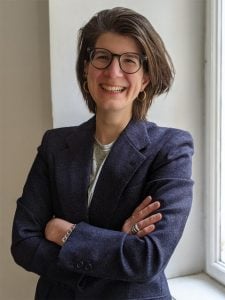
This is exactly what The FemPreneurship Academy aims to bridge. Some of its participants joined the program with a specific idea, others developed it during the courses, but they all agree that having digitally available professional advice and the opportunity to seek help are extremely important on their path to entrepreneurship.
Julia searched for further education by joining The FemPreneurship Academy , but found support and resources to develop her startup.
The opportunity to network with other women and exchange ideas, knowledge and information is also a strength of the program, appreciated by the participants.
Zuzana is the mother of a child with a disability. She wants to strengthen the integration of young people with invisible disabilities such as autism through social entrepreneurship. Her idea is to create a small community cafe where young people with autism and their families can socialize and spend meaningful time together. “I had the opportunity to get to know other women who have a harder time than me and who fit in with them. I can say that for me the program was not only educational but also therapeutic”, Zuzana concludes.

